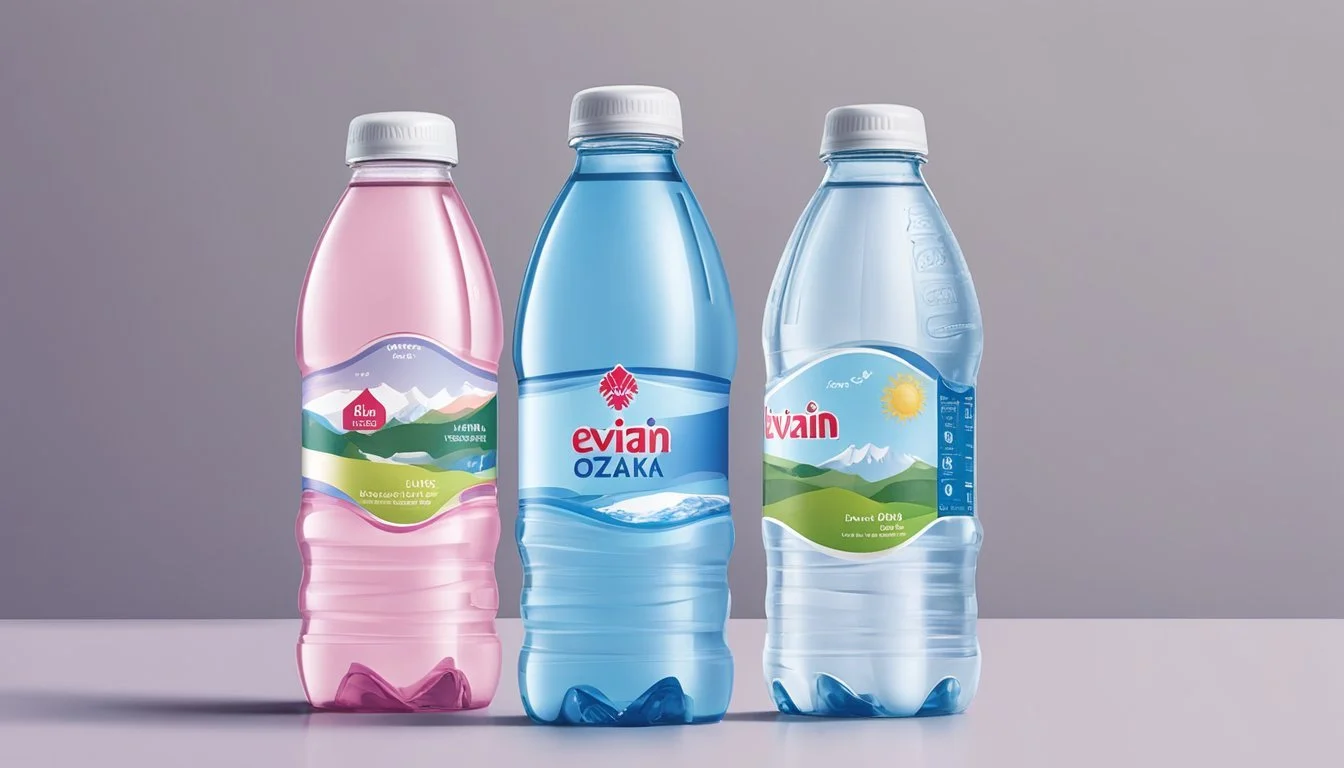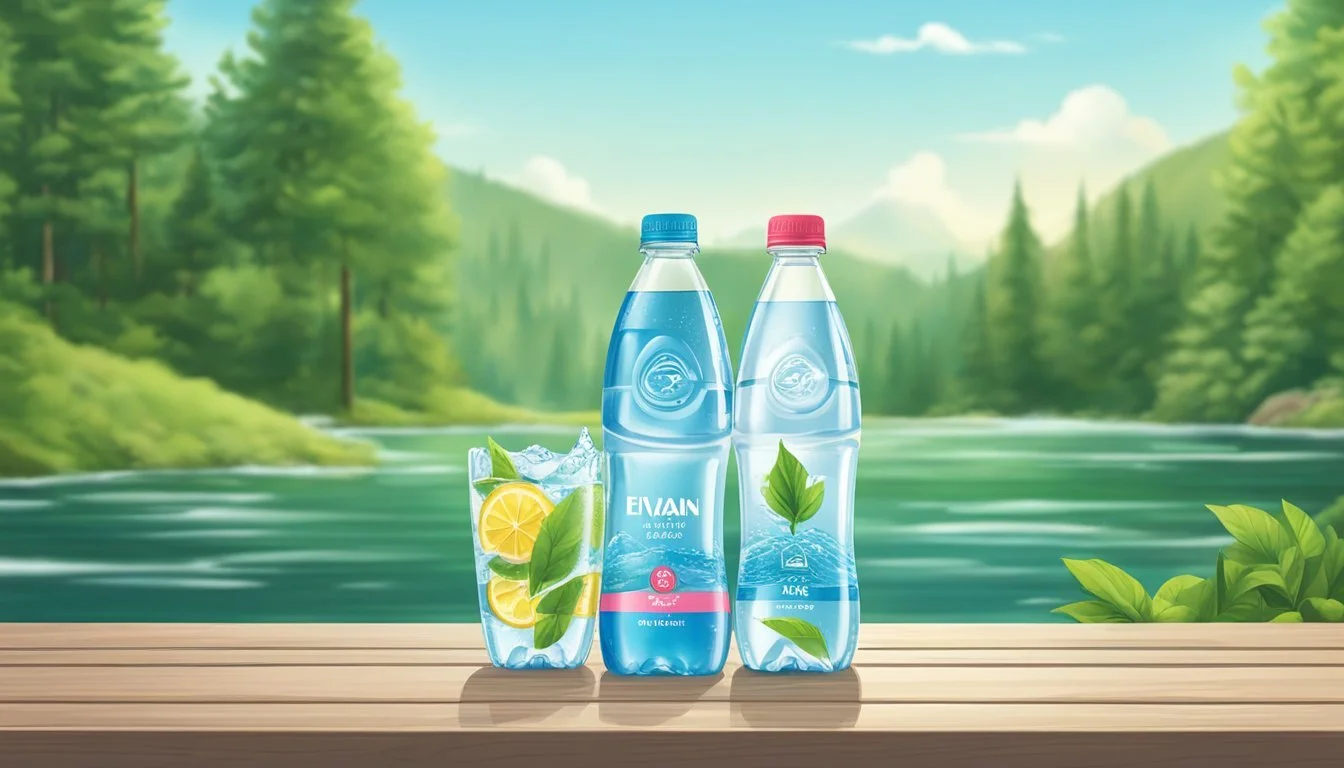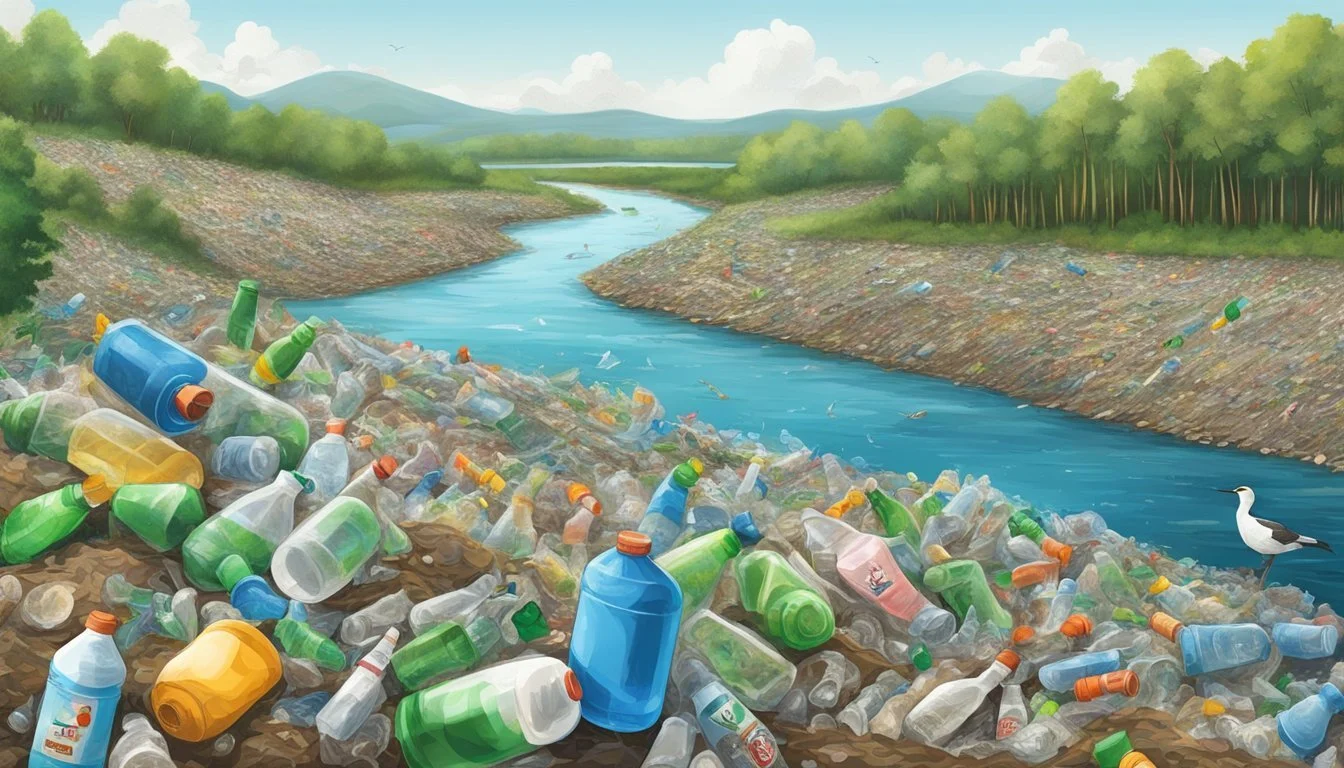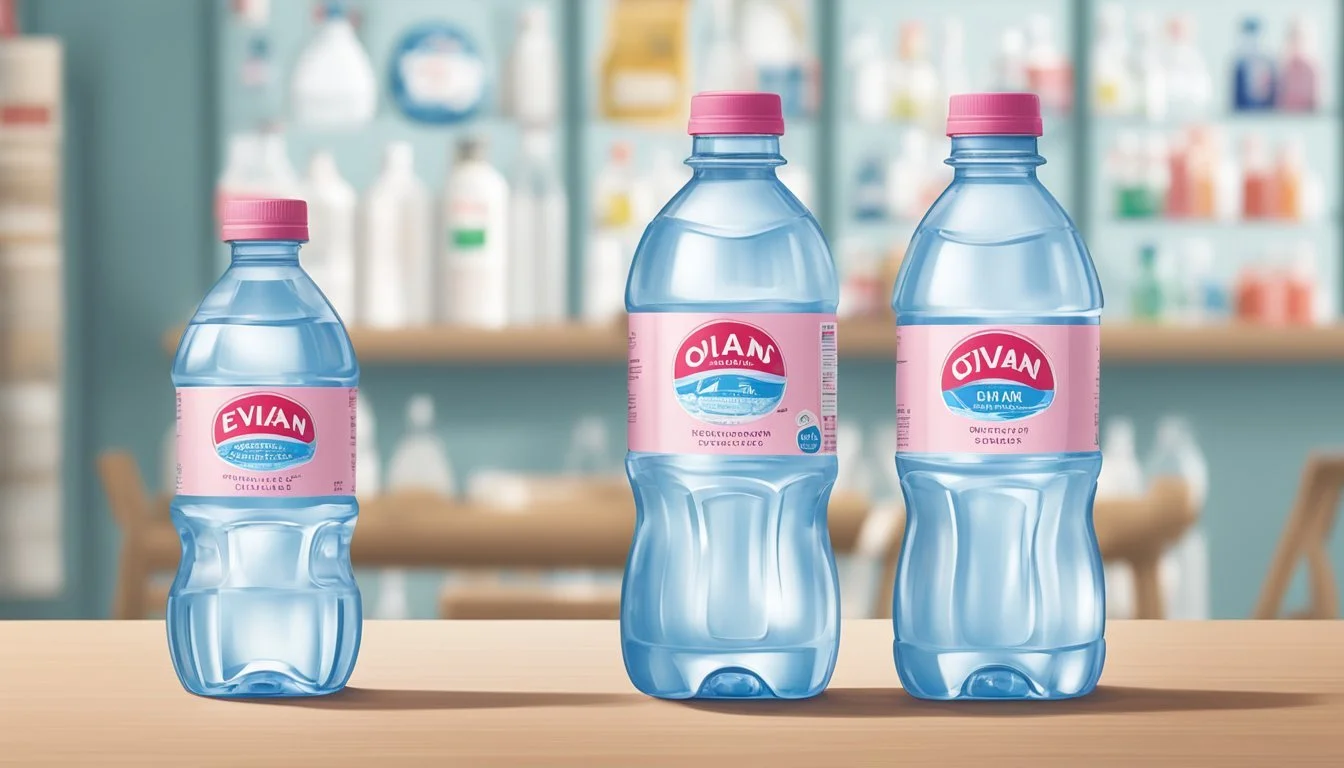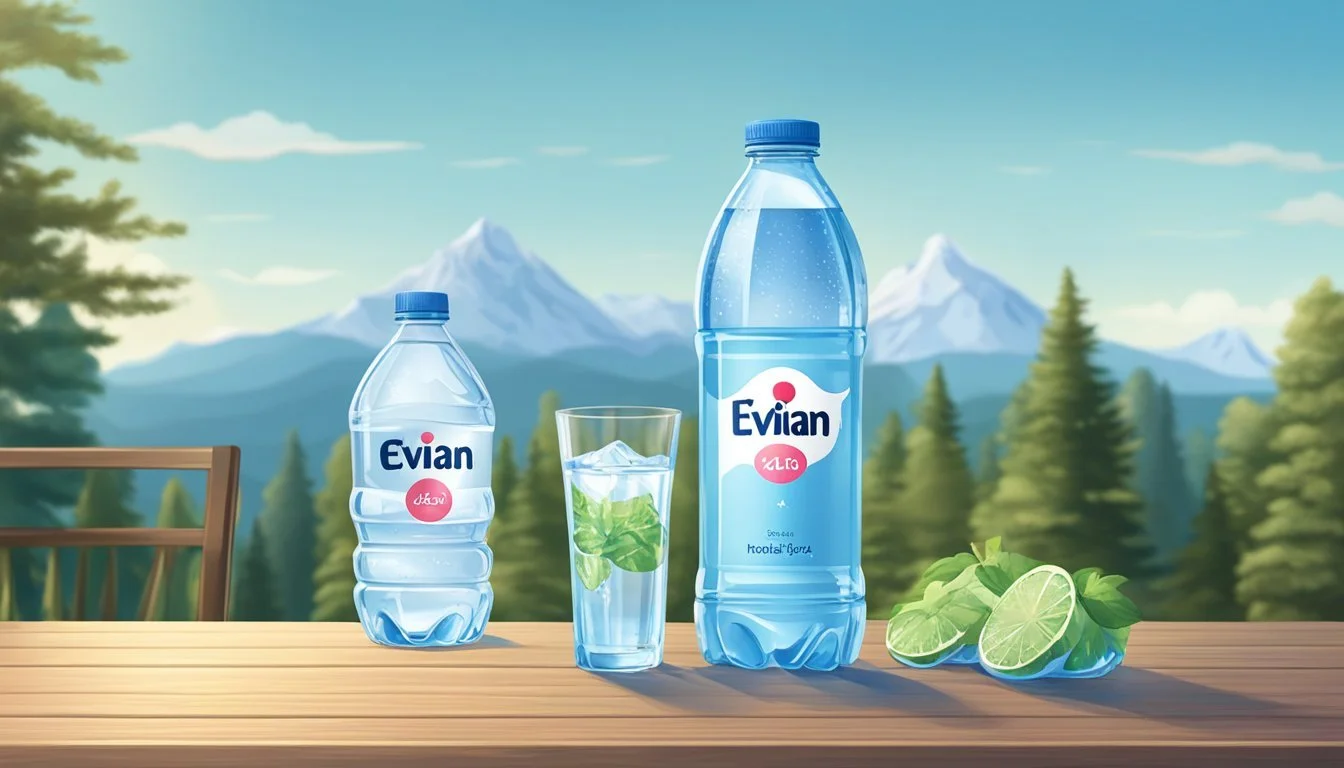Evian vs. Ozarka
A Comparative Analysis of Bottled Water Brands
In the world of hydration, bottled water is a staple for consumers seeking convenience and purity. Tastes and preferences vary greatly, leading to a market rich with choices. Among these, Evian and Ozarka stand out as two distinct brands with their own followings. Evian is known for its mineral-rich composition and originates from the French Alps, often associated with a certain level of prestige and purity. It positions itself as a premium product, touting a naturally filtered journey through alpine rocks.
Ozarka, on the other hand, sources its water from springs in Texas and promises a taste of the American heartland. It’s often recognized for its regional flair and commitment to providing naturally fresh water. While Evian crosses the Atlantic with its internationally renowned brand, Ozarka caters primarily to American consumers, emphasizing local sourcing and sustainability.
When selecting a bottled water, drinkers may consider factors such as taste, source, and the process each brand uses to bottle their product. These elements contribute to why consumers might choose one over the other. As hydration remains essential, the debate between which bottled water is better depends on individual preferences and values, ranging from the water's origin to its environmental impact.
Origin and Source of Water
The origin of bottled water is a critical factor in its quality and taste. Two notable brands, Evian and Ozarka, each boast unique sources, one from the pristine French Alps and the other from natural springs in Texas.
Evian: Sourced from the French Alps
Evian is renown for its origin in the French Alps, where it is naturally filtered through glacial sand on a 15+ year journey before emerging at the source. This process endows the water with a unique mineral composition, making it not only a refreshing drink but also a product sought for its balanced mineral content.
Location: French Alps
Type of Water: Natural Mineral Water
Source: Underground spring
Process: Natural filtering through glacial sand
Ozarka: Harvested from Texas Springs
In contrast, Ozarka is a brand that sources its water from several springs located in Texas. The water is drawn from underground springs, and like Evian, it carries natural minerals from its journey through the earth. Ozarka's spring water is appreciated for its freshness and natural taste, reflecting the quality of its Texan origins.
Location: Texas, USA
Type of Water: Spring Water
Source: Natural springs
Process: Harvested from underground sources
By delineating the origin and sources of Evian and Ozarka water, consumers can make informed decisions based on the geographic and geological characteristics that contribute to the properties of these bottled waters.
Water Quality and Contents
When comparing Evian and Ozarka bottled water, discerning consumers often consider mineral content, pH level, and purity. These factors can profoundly influence taste, health impacts, and overall quality of the water.
Mineral Content Analysis
Evian is renowned for its mineral content, sourced from the French Alps. It contains key electrolytes such as magnesium and calcium, essential for hydration and overall health. A breakdown is as follows:
Calcium: Typically around 80 mg/L
Magnesium: Approximately 26 mg/L
Ozarka, sourced from Texas, also boasts a natural blend of minerals, providing a crisp taste. Here are its common mineral measurements:
Calcium: Usually around 15-20 mg/L
Magnesium: Often less than 10 mg/L
Different sources lead to variations in mineral content, with Evian generally possessing higher levels.
PH Level Comparison
Evian is characterized as neutral to alkaline water, with a pH level typically close to 7.2, which can be more palatable to some and is thought by some consumers to offer health benefits associated with alkaline diets.
In contrast, Ozarka has a variable pH that can fall below neutral, but it is generally marketed as slightly alkaline. This suggests that both waters can offer a smooth taste without the acidic properties found in some other bottled waters.
Presence of Contaminants and Microplastics
While both Evian and Ozarka undergo rigorous purification processes, concerns about contaminants and microplastics are prevalent in the bottled water industry. Tests have indicated:
Evian: Reports suggest minimal presence of PFAS chemicals and microplastics, maintaining a reputation for purity.
Ozarka: Similar testing reveals low contaminant levels, though regional factors can contribute to variations in quality.
Consumers should note that while individual batches may differ, both brands aim to comply with stringent safety standards to minimize contaminants.
Manufacturing Processes
The processes utilized by Evian and Ozarka in producing their bottled water are critical factors that contribute to the purity and taste of the water. These processes also ensure that the water complies with health and safety standards before it reaches the consumer.
Evian's Filtration and Bottling
Evian water begins its journey as rain and snow, filtering through glacial rocks in the French Alps, a process that naturally endows it with minerals and electrolytes. Evian's process is unique because it takes over 15 years for the water to filter through the protected aquifer. Once it emerges, the water goes through a meticulous filtration process that preserves its natural mineral content, before being bottled at the source in Évian-les-Bains. The company prides itself on having a bottling site that operates on a mix of renewable energy sources, emphasizing sustainability in its manufacturing process.
Ozarka's Collection and Quality Assurance
Ozarka, sourced from springs in Texas, is known for capturing the natural essence of the region's water. The collection process is designed to maintain the water's natural balance. After the spring water is collected, Ozarka's manufacturing includes multiple steps of quality assurance. This consists of filtration methods such as reverse osmosis, ultraviolet light, ozone treatment, and being carbon filtered to eliminate impurities and ensure quality. Ozarka water is regularly tested for quality and consistency throughout the bottling process, ensuring that the reverse osmosis water meets stringent safety and taste profiles.
Packaging and Environmental Impact
When choosing between Evian and Ozarka, consumers should consider each brand’s packaging materials and their respective environmental impacts, particularly regarding plastic and glass bottles and the companies' sustainability efforts.
Plastic vs Glass Bottles
Evian primarily offers its water in plastic bottles, which are convenient and lightweight. However, plastic bottles often contain BPA, though Evian uses BPA-free materials. They are less resource-intensive to transport due to their lower weight but can contribute significantly to plastic waste if not recycled properly.
Ozarka, on the other hand, also sells its water in plastic bottles, which are widely used across the industry. Both brands have an environmental impact through the production and disposal of these bottles, though efforts to mitigate these effects are in place.
Advantages of Plastic: Lightweight, shatterproof, cost-effective
Advantages of Glass: Reusable, recyclable, BPA-free
Sustainability Efforts
Evian has committed to becoming a carbon neutral brand by 2025, focusing on reducing the carbon footprint of their packaging and promoting recycling efforts. They utilize a closed-loop recycling system for their bottles, which lessens the environmental impact.
Ozarka emphasizes the use of recycled plastic in their bottles and encourages recycling to reduce plastic waste. Their sustainability efforts include educational campaigns and local recycling programs, emphasizing the importance of responsible consumer behavior in minimizing environmental footprints.
Evian Sustainability: Aims for carbon neutrality, closed-loop recycling
Ozarka Sustainability: Incorporates recycled plastics, supports local recycling initiatives
Consumer Experience
The consumer experience for Evian and Ozarka largely hinges on taste profile preferences and brand perceptions influenced by marketing strategies.
Taste Profile Preferences
Consumers often choose Evian for its smooth, neutral taste and high mineral content, a result of the water filtering through glacial rocks in the French Alps. Being naturally alkaline, its pH sits around 7.2, appealing to those seeking alkaline water for its purported health benefits.
Ozarka, sourced from Texas springs, is often lauded for its crisp, fresh taste that reflects its natural origin. It is primarily mineral water, though the specific mineral make-up differs from its French counterpart. Ozarka's flavor profile may appeal to those who prefer a taste that's characteristic of American spring water.
Brand Perceptions and Marketing
Evian enjoys a global reputation as a premium bottled water brand. Its iconic advertising campaigns have emphasized the brand's connection to youth and purity, with a recent shift towards sustainability by introducing a water bottle made of recycled materials.
Ozarka, while less globally recognized, has strong regional loyalty in the United States. It emphasizes its local roots in its marketing, appealing to consumers who prioritize supporting American businesses. Ozarka's brand perception leans towards being straightforward and reliable, rather than luxurious.
With both popular brands making substantial efforts in marketing, consumers' choices are often swayed by the brand story that resonates with them, in addition to the actual product experience.
Health and Hydration
When evaluating bottled waters such as Evian and Ozarka, a key consideration is their capacity for hydration and overall health benefits. Each brand carries distinct characteristics, particularly in their mineral content and the presence of electrolytes, which may influence their effectiveness in hydration and health impacts.
Hydration Effectiveness
Evian is sourced from the French Alps and is known for its high mineral content. These minerals, particularly calcium and magnesium, play a crucial role in enhancing hydration by maintaining electrolyte balance in the body. Hydrated individuals tend to experience better physical and cognitive functions.
Ozarka, sourced from Texas, is a naturally occurring spring water that also contains various minerals. It provides necessary hydration and includes electrolytes, although the specific composition and concentration of minerals differ from Evian. Both waters can adequately keep a person hydrated, but the presence of natural electrolytes may make one preferential over the other depending on an individual’s dietary needs and taste preference.
Mineral Content Evian Ozarka Calcium High Moderate Magnesium High Moderate Electrolytes Present Present
Health Claims and Scientific Support
Evian touts a balanced mineral composition and markets itself on the health benefits derived from its unique source. The brand asserts that its water supports good health, often highlighting the naturally occurring electrolytes essential for bodily functions.
Ozarka emphasizes its local sourcing and natural electrolyte content. In terms of scientific support, neither brand has definitive, peer-reviewed research proving superior health benefits over regular, clean drinking water. It is important to note that while electrolyte water might be beneficial during intensive exercise or bouts of gastrointestinal distress, for everyday hydration purposes, both Evian and Ozarka offer similar benefits and are effective in keeping one hydrated.
Both brands meet the FDA regulations for bottled water, ensuring safety for consumption. However, one should not expect vast differences in health benefits from drinking bottled waters like Evian or Ozarka compared to other clean water sources.
Regulatory Standards
When comparing Evian and Ozarka bottled water, understanding each brand's adherence to regulatory standards is essential for assessing their quality and safety.
Compliance with EPA and FDA
Both Evian and Ozarka demonstrate compliance with stringent U.S. Environmental Protection Agency (EPA) and Food and Drug Administration (FDA) regulations. The EPA sets standards for tap water, while the FDA regulates bottled water as a food product, ensuring that both brands maintain levels of contaminants below the established thresholds. Specifically, Ozarka, being distributed within the United States, adheres to the FDA's established pH levels and contaminant limits, which are comparable to the EPA's standards for public water systems.
Independent Testing and Certifications
Evian and Ozarka are subjected to independent testing to verify the absence of harmful levels of contaminants. They may also seek voluntary certifications from third-party organizations such as the NSF International or the International Bottled Water Association (IBWA) to further assure consumers of their water quality. These certifications involve rigorous scrutiny of the mineral content and absence of contaminants in the bottled water.
Evian, sourced from the French Alps, boasts natural mineral water status, recognized by stringent international standards ensuring its protective origin and consistent mineral content. Ozarka, sourced from multiple springs in Texas, must also meet specific mineral content standards, establishing it as a quality brand of natural spring water in the United States.
International Standards and Recognition
Evian, being an international brand, not only must comply with FDA regulations when sold in the United States but also with international standards, such as those from the Codex Alimentarius Commission or the European Union. These standards ensure that the essential minerals in Evian water are maintained at a consistent level, with pH levels and mineral content strictly monitored.
Ozarka's compliance with international recognition may be less stringent due to its primary distribution within the U.S. However, it still maintains a reputation for meeting or exceeding international bottled water quality standards, confirming it as a safe and reliable brand for consumers globally seeking quality natural spring water.
Price Point and Availability
In assessing Evian and Ozarka bottled waters, the key factors for consumers often revolve around their cost-effectiveness and ease of purchase.
Cost Analysis and Value
The price of Evian water is typically higher than Ozarka, reflecting its international sourcing and brand positioning as a premium product. Consumers can expect to pay approximately $1.89 for a 1-liter bottle of Evian. In contrast, Ozarka, a brand with regional distribution, is known for its affordability with prices hovering around $0.99 for the same quantity.
Evian:
1 Liter: ~$1.89
500 ml (Pack of 24): ~$19.99
Ozarka:
1 Liter: ~$0.99
500 ml (Pack of 24): ~$4.49
Distribution and Retail Presence
Evian is a globally recognized bottled water brand with extensive distribution networks, ensuring its availability at supermarkets, convenience stores, and specialty food shops. Its French Alps origin lends it international appeal, yet this expansive reach can influence its retail price.
Ozarka, primarily sourced from three springs in Texas, displays a strong retail presence in the United States, especially in the southern regions. It is widely regarded as one of the best bottled water brands within its more localized market. Ozarka's distribution is robust in Texas and neighboring states and can readily be found at most major American retailers.
Conclusion
When selecting a bottled water, consumers often weigh factors like taste, source, and water quality. Evian and Ozarka are two brands that offer distinct experiences.
Evian, sourced from the French Alps, is synonymous with luxury and is often praised for its mineral content and taste. Its natural filtering process imbues the water with electrolytes and minerals beneficial for the body. Studies have highlighted Evian's low microplastic presence, which is a significant consideration for health-conscious individuals.
On the other hand, Ozarka originates from Texas and offers a more localized option for those in the United States, particularly in the southern regions where it is widely distributed. It is appreciated for its affordability and accessibility, appealing to a broader consumer base seeking clean drinking water without the higher cost associated with imported brands.
Here is a brief comparison:
Aspect Evian Ozarka Source French Alps Springs in Texas, United States Taste Balanced mineral content, smooth Clean, fresh, with varying mineral content Affordability Generally more expensive More budget-friendly Microplastics Low levels detected, according to studies Studies and reports on levels may vary
Consumers have distinct preferences and values when choosing their bottled water. While some may opt for Evian's mineral-rich content and prestigious reputation, others might prefer Ozarka's regional appeal and cost-effectiveness. Ultimately, both brands provide safe and clean drinking water, but the choice between them depends on individual priorities and tastes.

